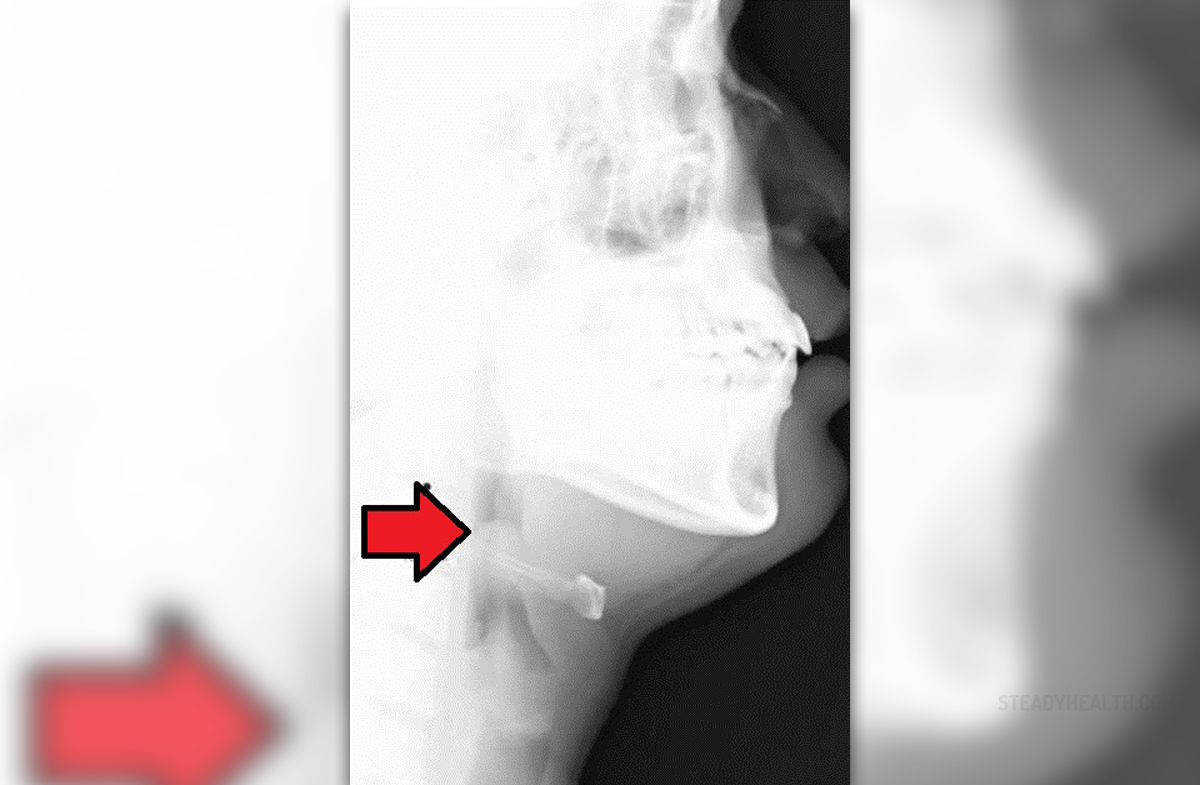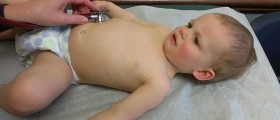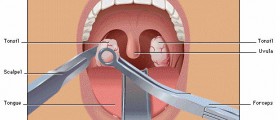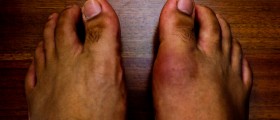About Epiglottis Problems
Epiglottis is a part of the larynx and it actually represents a flap made of elastic type of cartilage covered with a mucus membrane. It is attached to the root of the tongue and it points out dorsally to the portion of the mouth behind the tongue and the hyoid bone. One of the most serious medical problems related to the epiglottis is an infection. The infection of the epiglottis can be caused by three different sorts of agents that include bacteria, viruses and fungi. This delicate structure can also be damaged by a hard blow in the neck. Inflammation of the epiglottis is also possible after drinking hot fluids and eating spicy foods.
Inflammation of Epiglottis
Inflammation of the epiglottis is a condition medically known as epiglottitis and it features swelling and erythema at the affected areas. When that happens, a person may experience certain epiglottis problems. In a majority of cases, epiglottitis is caused by some sort of an infection. The most common infective agent which causes epiglottitis is a type of bacteria called Streptococcus Pneumoniae. This laryngeal structure can also be affected by a type of fungus known as Candida Albicans. Apart from these bacterial and fungal agents, there are several viruses which are also among the major culprits for epiglottitis and they include Varicella Zoster and Haemophilus Influenzae.
Causes of Epiglottitis
The leading cause of all cases of swollen epiglottis is inflammation. Inflammation does not only affect the epiglottis, so the surrounding tissues can get inflamed as well in some cases. As already mentioned, infection of any kind is the most typical and the most common cause of inflammation. Numerous infective agents can be engaged in the process including different types of bacteria already mentioned.
- The main presenting symptoms in all patients were sore throat (79%) and odynophagia (62.5%).
- The main presenting symptoms in patients with infectious epiglottitis were sore throat (93.7%) and odynophagia (81.2%), while dyspnea was common in epiglottitis caused by angioedema, and muffled voice and sore throat were common in epiglottitis due to thermal and caustic injury.
- Respiratory distress did not occur in patients with epiglottitis due to Behçet’s disease, but odynophagia was the most prominent symptom. Fever was a significant symptom (62%) of infectious epiglottitis but was not seen in noninfectious epiglottitis.
Apart from infections, physical trauma may be another cause of swollen epiglottis. Direct blow to the throat, scald burns to the neck and face and especially burns caused by drinking very hot fluids lead to epiglottitis and consequent swelling of this organ. The most severe damage which is followed by swelling of the epiglottis is inhalation of various toxic chemicals or other irritants. And finally, smokers and drug addicts who consume heroin, cocaine and crack are more susceptible to swelling of the epiglottis.
Symptoms and Signs of Epiglottitis
Apart from swelling, additional symptoms of epiglottitis may or may not include redness of the epiglottis, abnormal breathing sounds, fever and chills, excessive presence of saliva, cyanosis and hoarseness of the voice. Patients also commonly complain about painful sensations in the throat triggered by epiglottitis. Swollen epiglottis may affect both children and adults. Epiglottitis caused by infective agents is usually accompanied by fever and soreness of the throat. The fever may be rather high and in some patients there is also a slight chance of chills as well as shaking. Another common symptom of epiglottitis is excessive production of saliva and in severe cases when the process of breathing is seriously endangered the patient may even develop peripheral cyanosis. Apart from the previously mentioned the patient may experience noticeable changes in the quality of the voice, such as hoarseness. Progression of the disease causes serious problems with breathing and swallowing of the throat as well.
Diagnosis and Treatment for Epiglottitis
It is important that people realize that epiglottitis is a rather serious medical condition which requires prompt medical attention. The doctor can set the correct diagnosis just by performing examination of the larynx. This type of examination is performed with the assistance of a small mirror held against the back of the throat. This examination is medically referred to as indirect laryngoscopy. In order to confirm the presence of any infective agents the doctor needs to perform blood culture and/or throat culture after taking swabs from the affected surface of the throat. The culture may point to the presence of bacteria or fungi. A complete blood count also points to the presence of infection in cases when it indicates a high number of white blood cells. Almost all patients who suffer from epiglottis require intensive medical care.
The treatment includes certain types of prescription medications as well as methods which will help the patient breathe normally. In severe cases of epiglotittis the patients are intubated and treated with administered oxygen. There were even some cases when the patents were put on a ventilator. Depending on the underlying cause, the patients may be prescribed antibiotics, antiviral drugs or antifungal drugs. Sometimes the patients are treated with bronchodilatators. They may reduce swelling and sticky mucus that blocks the trachea.
It is also essential to administer corticosteroids which reduce the inflammation and swelling and improve the breathing. Some patients are also administered fluids intravenously. If swelling is serious and interferes with breathing, the condition requires urgent medical help. In extreme cases tracheotomy is performed.




-Arthritis_f_280x120.jpg)












Your thoughts on this
Loading...